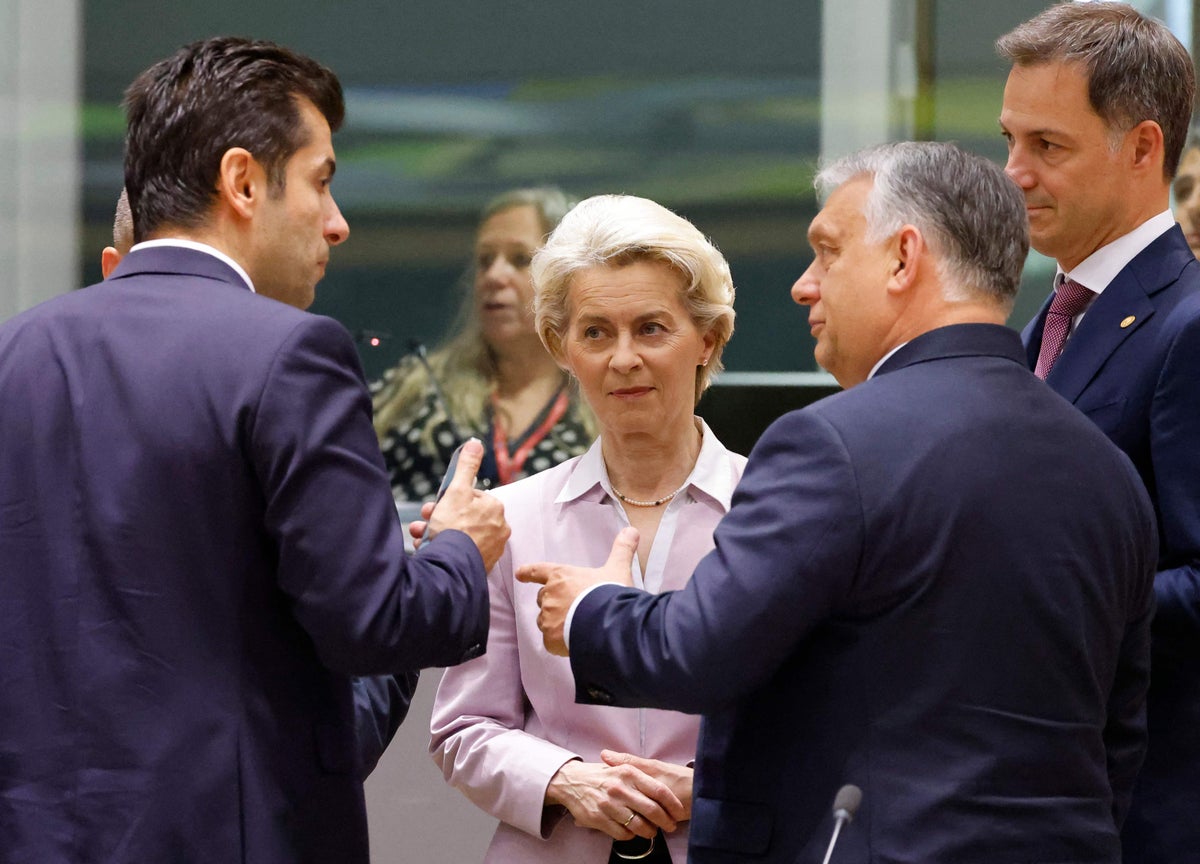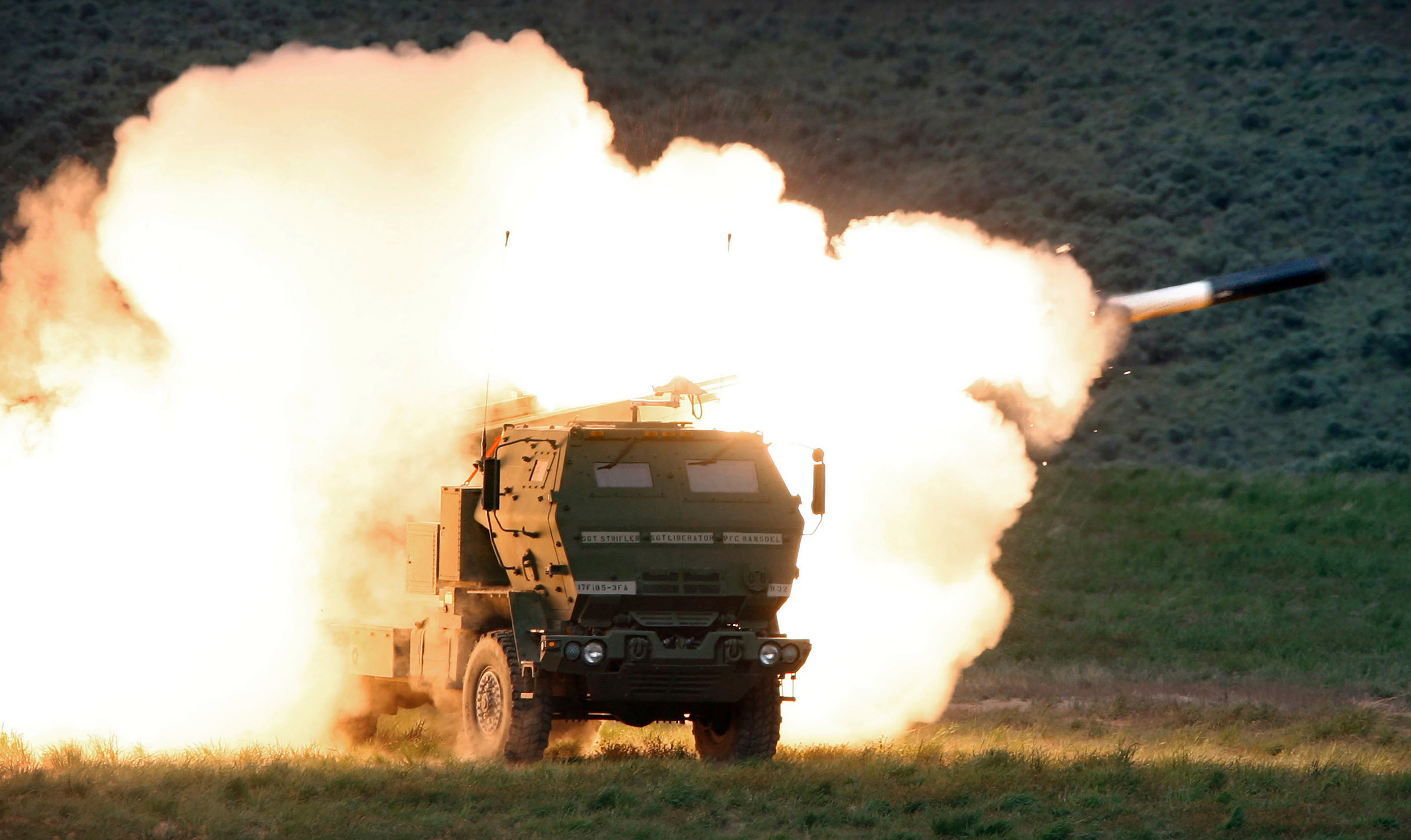
Ukraine is set to become a candidate country to join the European Union on Thursday, a major diplomatic push by Brussels designed to show a united front against Vladimir Putin’s Russia.
The move – and similar ones for Moldova and Georgia, other countries under threat of Russian expansionism – was expected to be approved by EU leaders in Brussels later on Thursday. It would come just hours after the European parliament overwhelmingly approved candidacy status for the three states.
“Ukraine is going through hell for a simple reason: its desire to join the EU,” the European Commission president, Ursula von der Leyen, said earlier this week.
Candidacy status would kick start a years-long process, but it marks a huge geopolitical shift and is likely to anger Russia as it struggles to impose its will on Ukraine.
Mass protests in Kyiv in 2014 ousted Ukraine’s then-president after he broke a promise to develop closer ties with the EU.
The expected green light “is a signal to Moscow that Ukraine, and also other countries from the former Soviet Union, cannot belong to the Russian spheres of influence”, Ukraine’s ambassador to the EU, Vsevolod Chentsov, told Reuters.
Friday marks four months since Russian president Vladimir Putin sent troops across the border in what he calls a “special military operation” partly necessitated by western encroachment into what Russia considers its sphere of influence.
The conflict, which the west sees as an unjustified war of aggression by Russia, has killed thousands, displaced millions and destroyed cities, while the curtailment of food and energy exports has affected countries across the world.
In a convincing parliamentary vote, 529 MEPs backed a move to grant candidacy status, while 45 votes were made against the proposal. A further 14 politicians abstained.
Ahead of EU talks in which his country’s candidacy status is likely to be granted, Ukrainian president Volodymyr Zelensky, who applied for membership at the start of the war, said: “This is like going into the light from the darkness.”
Ms von der Leyen claimed that “history is on the march”, as the bloc prepared for an ambitious expansion.
“I am not just talking about Putin’s war of aggression,” she said in the run-up to the summit. “I am talking about the wind of change that once again blows across our continent. With their applications, Ukraine, Moldova and Georgia are telling us that they want change.”
The move comes at a time of acclerated change in European politics caused by Russia’s invasion of Ukraine. Both Finland and Sweden applied in May to join Nato, but their accession is being delayed by Turkey’s opposition.
Speaking earlier this week, the head of the Finnish army said his country was prepared for a Russian attack.
“We have systematically developed our military defence precisely for this type of warfare that is being waged there [in Ukraine], with a massive use of firepower, armoured forces and also air forces,” Gen Timo Kivinen said.
“Ukraine has been a tough bite to chew [for Russia], and so would be Finland,” he added.
Elsewhere on Thursday, Germany said it might have to introduce gas rationing because of the risk of dwindling deliveries from Russia, a senior government official warned.
Economy minister Robert Habeck said that the situation in country was “serious” and that Europe’s biggest economy faces a crisis over storing enough gas for the winter.
“The reduction in gas supplies is an economic attack on us by Putin. We will defend ourselves against this. But our country is going to have to go down a stony path now,” Mr Habeck said.
Asked about the threat of rationing, he said there would “hopefully never” be a need for such a move, but crucially added: “Of course, I can’t rule it out.”
Meanwhile on the ground, fighting continued in the Donbas on Thursday. The war of attrition in Ukraine’s industrial heartland is fiercest in the twin cities of Sievierodonetsk and Lysychansk, Luhansk province.
The battle there is “entering a sort of fearsome climax”, said Oleksiy Arestovych, an adviser to Zelensky.
Russian forces were trying to encircle Ukrainian troops defending Lysychansk, senior Ukrainian defence official Oleksiy Gromov said in a briefing on Thursday.
Luhansk governor Serhiy Gaidai said separately that all Lysychansk was within reach of Russian fire and the Ukrainian troops there might retreat to new positions to avoid being trapped.
Ukrainian forces were defending Sievierodonetsk and nearby Zolote and Vovchoyrovka, Gaidai added. Hundreds of civilians are trapped in a chemical plant in Sievierodonetsk as Ukraine and Russia dispute who controls the bombed-out city.

On the southern front, Russian forces struck Ukrainian army fuel tanks and military equipment near Mykolaiv with high-precision weapons, Russia’s defence ministry said, quoted by the Interfax news agency.
Ukraine said on Thursday that HIMARS multiple rocket systems had arrived from the United States. With a range of 7km, the systems can challenge the Russian artillery batteries that have bludgeoned Ukrainian cities from afar.
“Summer will be hot for Russian occupiers. And the last one for some of them,” defence minister Oleksii Reznikov tweeted.






